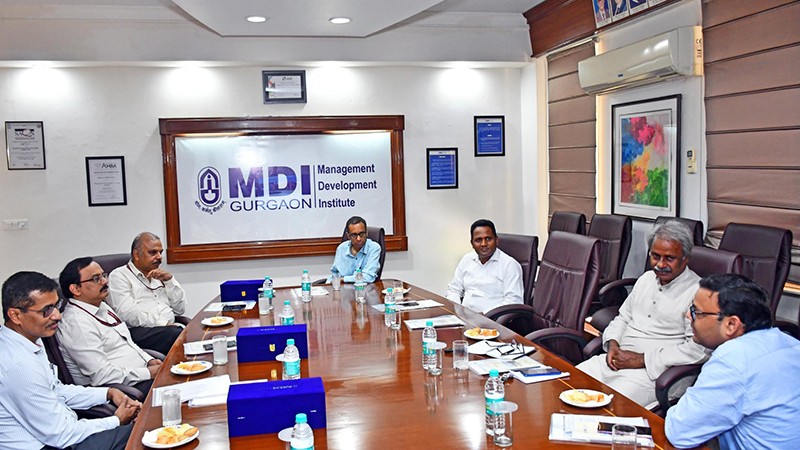March 30, 2022

GURUGRAM: With India at the cusp of assuming a global leadership position in the telecom sector, Management Development Institute Gurgaon has entered into an agreement with National Telecommunications Institute for Policy Research Innovation and Training (NTIPRIT) to provide mid-career training to Indian Telecom Service (ITS) officers.
NTIPRIT is the apex level training institute of the Department of Telecom (DoT). Under the agreement, MDI Gurgaon will the execute the management component of Phase-II and Phase-III Mid-Career Training Programme (MCTP) of 600 ITS officers.
While participants of the Phase II programme will be joint secretary and above level officers with 16 to 20 years of experience, those taking part in the Phase III programme will be of additional secretary level and above with around 25 to 30 years of experience.
Under the Phase III programme, 200 participants will undergo a week’s technical training at DoT and then complete another week-long management training at MDI Gurgaon.
The Phase II programme will have 400 participants who will also undergo a week’s technical training at DoT. Thereafter, they will complete a two-week management programme at MDI Gurgaon. Additionally, there is a foreign immersion in the Phase II programme. Under this, the participants will complete a week-long training programme at the University of Maryland School of Public Policy in the US.
“The participants shall be imparted current leadership management practices in the light of the changing global scenarios,” Dr. Rajesh Chakrabarti, Director of MDI Gurgaon, said. “They will be exposed to the latest developments in the field of policy formulation and policy implementation.”
Prof. Avanish Kumar of MDI Gurgaon, who is the Course Coordinator, said that “the programme is geared to promote policy entrepreneurs with rapidly evolving technology and market”.
Atul Sinha, DDG (Admin) at NTIPRIT, explained that from being a very low telecom density country, India has now become one of the highest telecom density nations.
“Now, India is poised to assume global leadership in all spheres of telecom, not only from the consumption angle,” Sinha said. “We are looking for technology development, technology management, export of telecom equipment, and balancing the trade deficit in the telecom sector.”
Regarding the foreign component under the Phase II programme, he said: “We wish to empower our officers with the experience of managing telecom technology at the global level. There is definitely a need of exposure to the international best practices.”
He added that India has traditionally been a huge importer of telecom equipment. But now, the government is focusing on exporting telecom equipment.
“We are in that position but managing the technology to make it export-oriented from being import-oriented is something where we need a lot of international exposure,” Sinha said. “I am sure that this visit and training programme at the University of Maryland and MDI Gurgaon is going to help our mid-level officers who will actually be leading this sector for the next five to 10 years.”
Adhir Kumar Singhal, DDG (TM) at the DoT, said that when these officers will go abroad, they will get exposed to global practices of telecom.
“This will certainly help us to deliver what has been mandated by the government to take the global leadership position in telecom,” Singhal added.
As for choosing MDI Gurgaon as the partner for executing the management component of the programmes, Sinha said that there could be no better institution as far as public policy is concerned.
“The way MDI Gurgaon has positioned itself for more than a decade in understanding public policy for different sectors, we are really impressed,” he said. “That is why, following the government procedure, we selected MDI Gurgaon.”